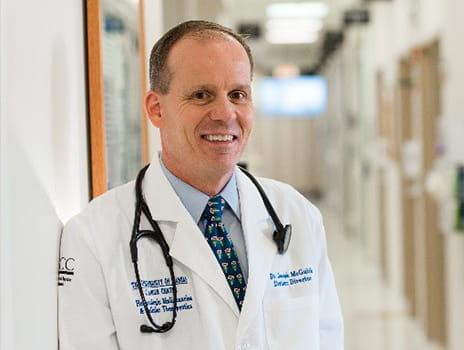May 14, 2020
Incysus Therapeutics, Inc., a biopharmaceutical company focused on delivering an gamma-delta (γδ) T cell immunotherapy for the treatment of cancers, announced that the first patient in a phase I clinical study, Expanded/Activated Gamma Delta T-cell Infusion Following Hematopoietic Stem Cell Transplantation and Post-transplant Cyclophosphamide, has been treated at The University of Kansas Cancer Center.
Many patients with hematological malignancies require a bone marrow transplant. These patients experience a prolonged period of immune deficiency during which time the cancer can return. A matched sibling donor is optimal but only 25% of patients have this option. It takes about three months to obtain the unrelated donor graft, and only half of those patients with an available donor can ultimately receive a transplant due to disease progression.
A partially matched family member (haploidentical) is a viable alternative, but efforts to replace the immune cells can result in severe graft-versus-host disease (GvHD) in which the donor T cells can attack the patient resulting in a significant, even potentially fatal complication. T cells have been shown to be key both in the response to leukemia and in GvHD. About half of all patients who receive a haploidentical transplant will relapse. Incysus Therapeutics has developed this novel γδ T cell approach to allow haploidentical transplantation while providing immune protection to prevent leukemic relapse and infections during the period in which the patient recovers.
Without recognizing traditional “foreign” antigens expressed by the mismatched host, γδ T cells are thought to be able to be delivered from a donor to a patient without generating GvHD. Additionally, γδ T cells, are part of the innate immune system with the ability to recognize and kill cancer cells even after MHC antigen loss, a common driver of leukemic relapse. γδ T cells can also provide a first-line defense against opportunistic viral infections.
Joseph McGuirk, DO, division director of the cancer center’s hematologic malignancies and cellular therapeutics program and the study’s principal investigator commented, “Developments in potentially curative stem cell transplants using family donors who have only partially matched immune systems - called haploidentical transplants - have greatly expanded access to stem cell transplantation. This is particularly important for certain ethnic groups, including African Americans, Native Americans and Latinos, who are less likely to have a well-matched family member or matched donor in the worldwide donor registries. However, relapse of the blood cancer for which the patient received the transplant occurs in half of the patients undergoing this procedure. The infusion of donor-derived γδ T cells from the stem cell donor, after being stimulated and expanded in the laboratory, offers the hope of diminishing this risk of relapse and curing more patients.”
“This is the first clinical study to test the innate anti-tumor effect of γδ T cells and the safety of a large bolus of expanded and activated γδ T cells including the risk of GvHD in the allogeneic transplant setting,” commented William Ho, co-founder and Chief Executive Officer of Incysus. “I am pleased that our team has successfully initiated patient enrollment in a second Phase I study. It’s an exciting time for adoptive cellular therapies with a number of companies seeking to develop allogeneic products. With this trial, we hope to bring improved patient outcomes to patients undergoing allogeneic stem cell transplantation and to demonstrate the safety of γδ T cells in the allogeneic setting.”
